*Editor’s Note: This story has been updated to include comment from Matt Ocko, co-managing director and co-founder of Data Collective VC.
Zymergen, a synthetic biology startup engineering microbes for a range of tasks, has closed a $400 million Series C funding led by returning investor SoftBank Vision Fund. The round includes new investors Goldman Sachs and Hanwha Asset Management, as well as returning investors, DCVC (Data Collective), True Ventures, Two Sigma Ventures, DFJ and Innovation Endeavors.
This is the largest-ever round of funding for a US-based startup company operating upstream in the food and agriculture supply chain. And it is just second globally to Chinese Agribusiness Marketplace Meicei, which raised a $450 million Series E earlier this year, according to AgFunder data.
Zymergen is not wholly focused on agriculture but it’s a significant part of its business and drove early demand for its molecular products that aim to replace petroleum-based products and other environmentally-damaging ingredients with a biological alternative. In agriculture, this means finding alternatives to chemically manufactured pesticides and fertilizers with microbial alternatives. In food, it could mean replacing preservatives or flavorings, or even packaging.
Zymergen would not disclose its customer base but Zymergen chief commercial officer Tom Stephenson told AgFunderNews that it sells biobased crop inputs to cooperatives and other large companies that then sell directly to farmers.
“Agriculture is a big part of what we do. To date, most of our work is mostly in agriculture and the broadly defined chemicals space. A smaller part of our business involves pharmaceuticals and healthcare, which we’ve gotten into in the last 12-15 months,” he said. “And if you include animal health in agriculture, one thing we can do with our technology is to take samples of microbiomes from animals and put them on the platform to discover novel compounds.”
Zymergen uses a combination of technology types to discover, improve and create new microbes with data science, machine learning, gene discovery, genetic modification, and robotic lab automation.
Machine learning algorithms and robotic genomic “factories” search the microbial genome, running tens of thousands of experiments to spot subtle signals of improvement on a certain task. The platform then analyzes these signals to identify paths that no human scientist could ever discover, enabling Zymergen to optimize molecules for specific traits.
According to Zymergen, the platform routinely accomplishes inside a year, in a single building, with a few hundred people, what would take thousands of scientists and specialists a decade, in square miles of facilities, and billions of dollars of spending.
Matt Ocko, Managing Partner of DCVC (Data Collective), the lead investor in Zymergen’s seed and Series A rounds, told AgFunderNews that the company is game-changing for food and agriculture, for three big reasons.
“One it can dramatically reduce the cost of key inputs to food and ag supply chains — like amino acids — at higher quality, at million metric ton scales and above; two it can discover, and then deliver at similar global scale quantities, new pesticides, fungicides, and herbicides that are *simultaneously* human, livestock, and beneficial-insect safe *and* less expensive per application *and* more efficient/targeted in their mechanism of action; and, three, it can do this in months for millions of dollars per product target, not a decade and billions of dollars like the incumbents.”
“This isn’t sci-fi – Fortune 500 companies have shipped over half a billion dollars of Zymergen-driven products in just the last 12 months,” he added.
In January of this year, Zymergen acquired functional metagenomics research firm Radiant Genomics, which uses libraries of genomics from many species of microbes and screens the diverse DNA samples for specific genes or traits that can produce naturally-derived products. Most biotechnology products today are derived from a small number of microbes that can be grown in a lab. Zymergen integrated Radiant Genomics’ libraries with its machine-learning and manufacturing program.
“The secular trend of synthetic biology, enabled by the genomics revolution and computational biology, is creating new opportunities across multiple industrial sectors,” said Deep Nishar, senior managing partner at SoftBank Investment Advisers, in a press release announcing the funding.
This latest round takes Zymergen’s total funding to $574 million after it closed a $130 million Series B in October 2016, a $42 million Series A in June 2015, and a $2 million seed round in January 2014.
This latest infusion of capital will enable Zymergen to double the capacity of its platform to meet the needs of its growing global client roster. The company will also invest in enhancing its platform, increasing the speed and predictability with which it can program and optimize biology for specific traits. Finally, Zymergen will begin commercializing products from its proprietary portfolio across a number of industries.
Novozymes in Denmark and Ginkgo Bioworks in Boston, which has also raised vast sums of money, are examples of two other synthetic biology companies working on similar problems through microbe manufacturing and engineering.
There are also a number of startups creating microbe-based inputs for crop production such as Pivot Bio, Concentric and Indigo Agriculture. Mayor seed company Bayer partnered with Ginkgo to create an ag microbials joint venture called Joyn Bio as the industry is only just starting to understand the power of the bacteria in and around the root zone, and elsewhere associated with crops.
Stephenson sees two key differentiating factors between Zymergen and the competition.
“First, we were tech-based from the day we were born. We built the business with automation, software, and data science approaches. We built a structure from the get-go that can handle all of the information we collect. We also work complementarily with the R&D outfits of our customers. We are not trying to do what they are doing and replace them. Instead, we are giving them a new tool to look at new things and to get further faster,” he explains.
“Second, we have a set of techniques that have delivered results that work at commercial scale. Many of the customers in the industry have made significant investments in capital equipment, processes, and human talent and we can develop improved products and offerings that work within the investments they have already made today. They’ve had a lot of misadventures with things that look exciting in the lab but that don’t perform outside the lab.”



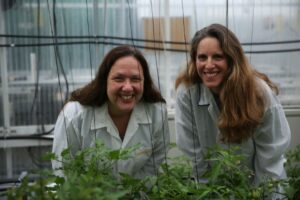
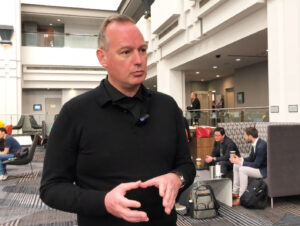

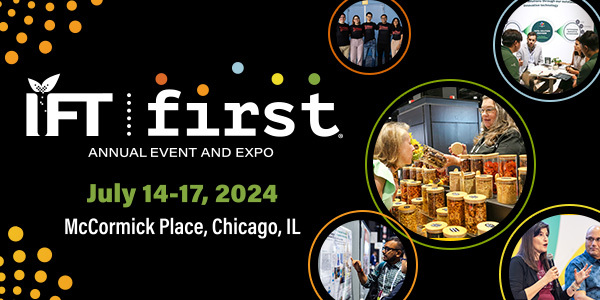
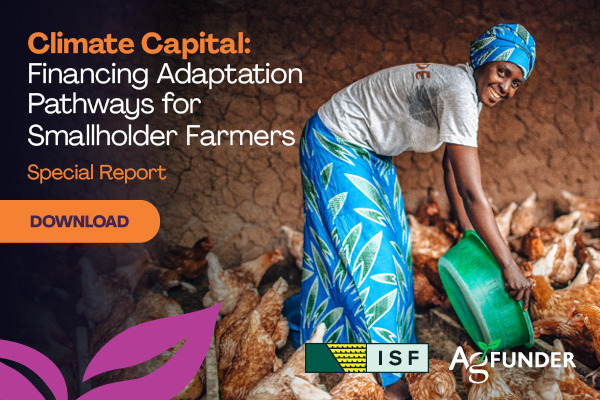
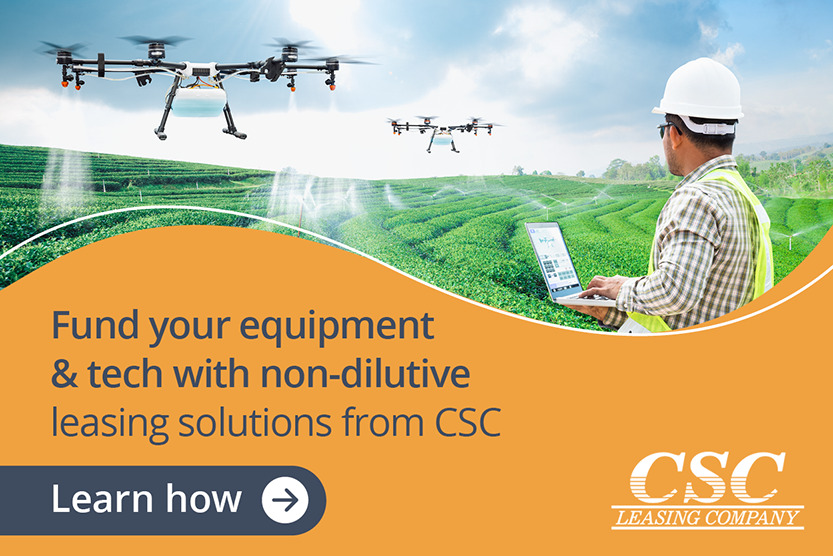


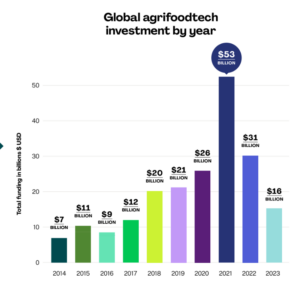
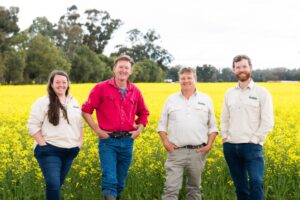


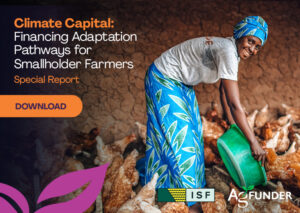

Sponsored
International Fresh Produce Association launches year 3 of its produce accelerator